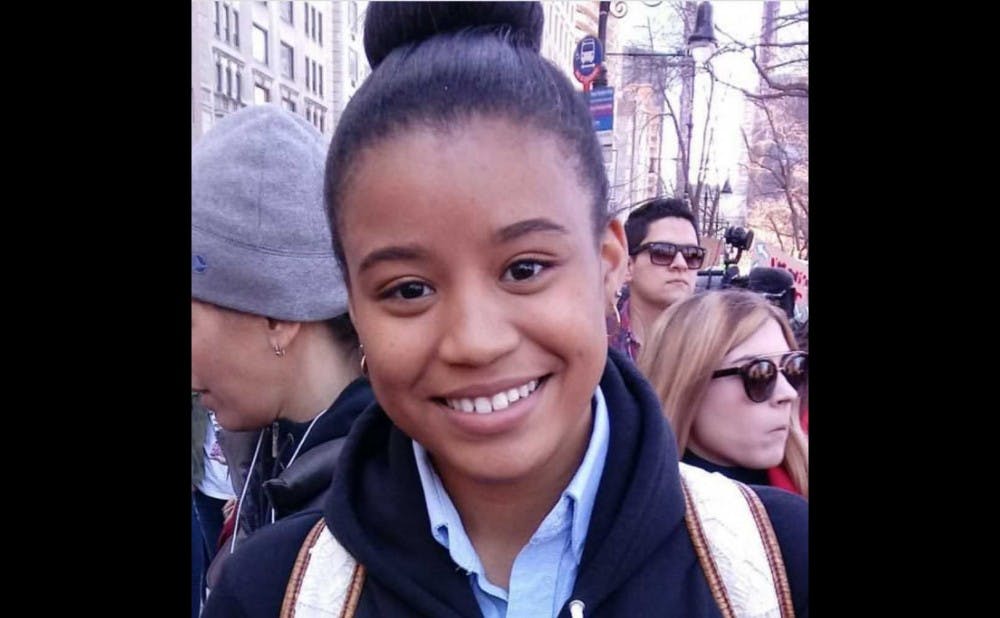Some students come to Duke eager to get involved in the activist culture that colleges are known for having. Victoria Pannell is a bit ahead of the game—her entire life has already revolved around activism.
The first-year from Harlem, New York, has made a name for herself across the country through her work with the Women’s March and her organizing for gun reform. Earlier this month, a video of her talking about national school walkouts against gun violence that was posted on Twitter by media company NowThis went viral and further propelled Pannell into the center of the movement.
“No one deserves to die, no one deserves to be shot,” she said. “We have an administration that is complacent, so someone has to step up and take matters into their own hands.”
The spotlight is nothing unusual for Pannell, who gained recognition for her work throughout middle school and high school. She explained that she began giving back to the community when she was four years old and started helping her mom run their food pantry, through which they feed about 500 families every year.
As she got older, she connected with Rev. Al Sharpton and his National Action Network organization, which aims to increase voter education, help people in poverty and support small businesses. She was appointed northeast regional director of the youth movement, leading the efforts to advocate for gun reform and other issues impacting schools and communities.
“It was basically self-advocating for youth issues and making sure that politicians don’t forget young people exist,” she said.
Pannell has also been involved with Street Corner Resources, an organization that works to create a more peaceful community by providing young adults access to employment, education and training.
In 2015, she founded her own group called Tools for Change, an entirely youth-run effort. The organization helps provide young people with whatever they need—including applying to college, obtaining state IDs or even just finding food and clothing. They also facilitate access to mental health therapy and teach kids life skills—such as opening a savings account and learning financial literacy and table manners.
Pannell has received numerous accolades for her work. In March 2016, she was awarded the Phenomenal Woman Award by the New York Branch of the NAACP and then was appointed to NYC Community Board 10 by Manhattan Borough President Gale Brewer a month later. She also received the distinction of Chairperson of Community Board 10 Youth Task Force in September 2016.
Another one of Pannell’s passions is fighting against sex trafficking, which she first learned about at age 12 when she portrayed a girl who had been sexually trafficked for a public service announcement by Change.org. She said the experience especially impacted her when she met the real-life girl whose story she was telling.
“I knew I wanted to dedicate at least a portion of my life to stop human trafficking,” she said. “People think it’s in another country when it’s in our own backyard.”

